How Salvador Dali Descended into Dante's Hell
Categories: Culture
By Pictolic https://pictolic.com/article/how-salvador-dali-descended-into-dante39s-hell.html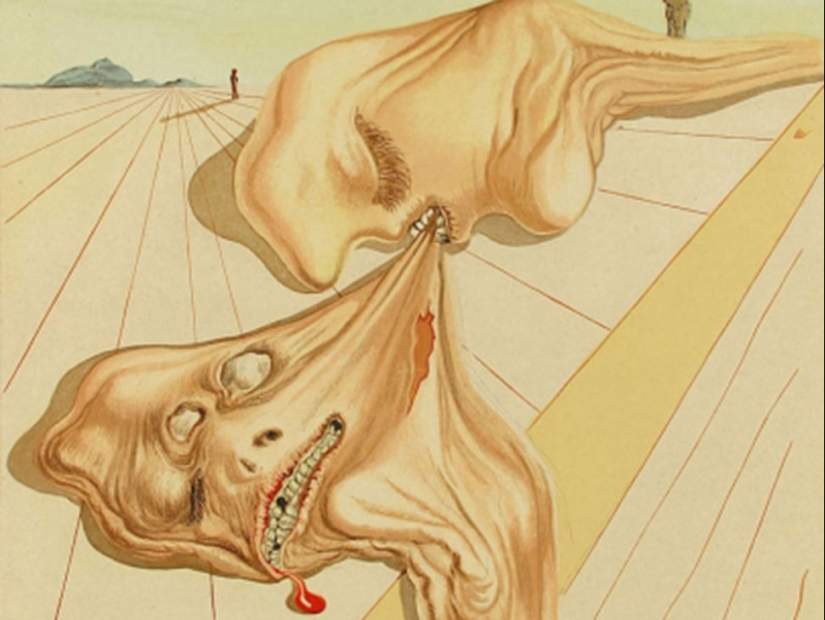
The famous “Divine Comedy” by Dante Alighieri begins with the fact that the poet, halfway through his earthly life, found himself in a dark forest, having lost his way from the straight path. The poem begins, frankly speaking, not very inspiring. This is more reminiscent of the beginning of some scary story or bloody detective story. With his work, Dante made a great contribution to the development of poetry and to the understanding of human nature, but his main achievement was the image of hell he created, which influenced the concept of hell in human consciousness.
There are nine circles in Dante's hell, and in each of them there are more and more sophisticated and cruel tortures and punishments, fire, ice, mythical creatures and terrible demons. The Divine Comedy is an allegory about sin and redemption. Virgil, another poet who also touched on the theme of hell in his work, becomes Dante’s guide in hell. Of course, Salvador Dali, a devout Catholic, could not ignore such a topic. The fact that the poem had previously been illustrated by William Blake and Gustave Doré only added to the theme's appeal.
 In 1957, the Italian authorities asked Salvador Dali to create a series of 101 watercolors for a new edition of The Divine Comedy, dedicated to the 700th anniversary of the birth of Dante Alighieri and scheduled for 1965. Dali got to work. But when the first of Dali's watercolors were exhibited at the Pallavicini-Rospigliosi Palace in Rome, part of the Italian public was unhappy that a Spaniard rather than an Italian had been hired to pay tribute to their country's greatest poet. The project was quickly abandoned.
In 1957, the Italian authorities asked Salvador Dali to create a series of 101 watercolors for a new edition of The Divine Comedy, dedicated to the 700th anniversary of the birth of Dante Alighieri and scheduled for 1965. Dali got to work. But when the first of Dali's watercolors were exhibited at the Pallavicini-Rospigliosi Palace in Rome, part of the Italian public was unhappy that a Spaniard rather than an Italian had been hired to pay tribute to their country's greatest poet. The project was quickly abandoned.
 But Dali was not embarrassed by this, and he finished working on the illustrations. In 1964, he turned to his French publisher Joseph Fauré, who was then working on the release of a volume of Dali's illustrations for a new edition of Don Quixote. The artist proposed making a new edition of Dante Alighieri's poem with his illustrations. Fauré showed a selection of Dali's watercolors to the publishing house Les Heures Claires, which was enthusiastic about the project.
But Dali was not embarrassed by this, and he finished working on the illustrations. In 1964, he turned to his French publisher Joseph Fauré, who was then working on the release of a volume of Dali's illustrations for a new edition of Don Quixote. The artist proposed making a new edition of Dante Alighieri's poem with his illustrations. Fauré showed a selection of Dali's watercolors to the publishing house Les Heures Claires, which was enthusiastic about the project.
 Two engravers, Raymond Jacquet and his assistant Taricco, were tasked with hand-carving the 3,500 wooden blocks needed to reproduce Dali's watercolors. A limited edition of the book has been published in Italian. Reprints of Dali's watercolor illustrations for The Divine Comedy can be purchased online.
Two engravers, Raymond Jacquet and his assistant Taricco, were tasked with hand-carving the 3,500 wooden blocks needed to reproduce Dali's watercolors. A limited edition of the book has been published in Italian. Reprints of Dali's watercolor illustrations for The Divine Comedy can be purchased online.
 In the illustrations, details characteristic of Dali are noticeable - elongated limbs, sprawling faces and an anxious mood. Although his illustrations cannot be compared to the works of Dore and Blake, Dali's works create a surreal interpretation of hell and all its punishments.
In the illustrations, details characteristic of Dali are noticeable - elongated limbs, sprawling faces and an anxious mood. Although his illustrations cannot be compared to the works of Dore and Blake, Dali's works create a surreal interpretation of hell and all its punishments.
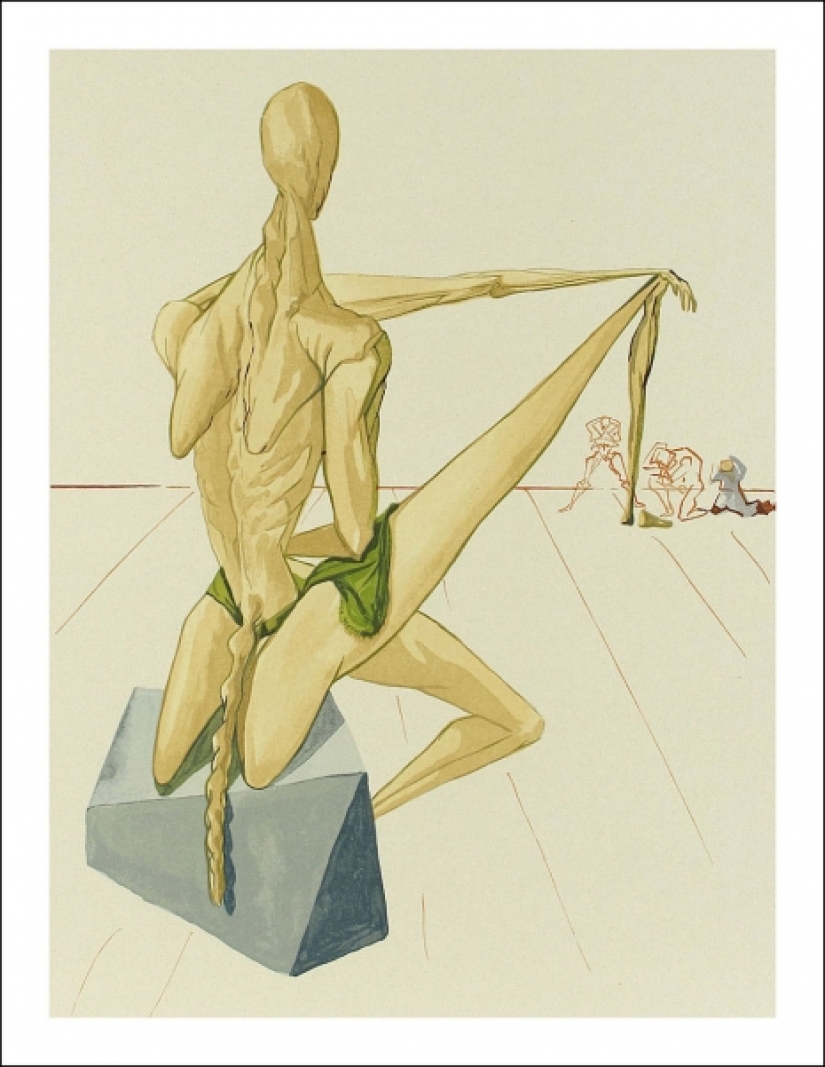
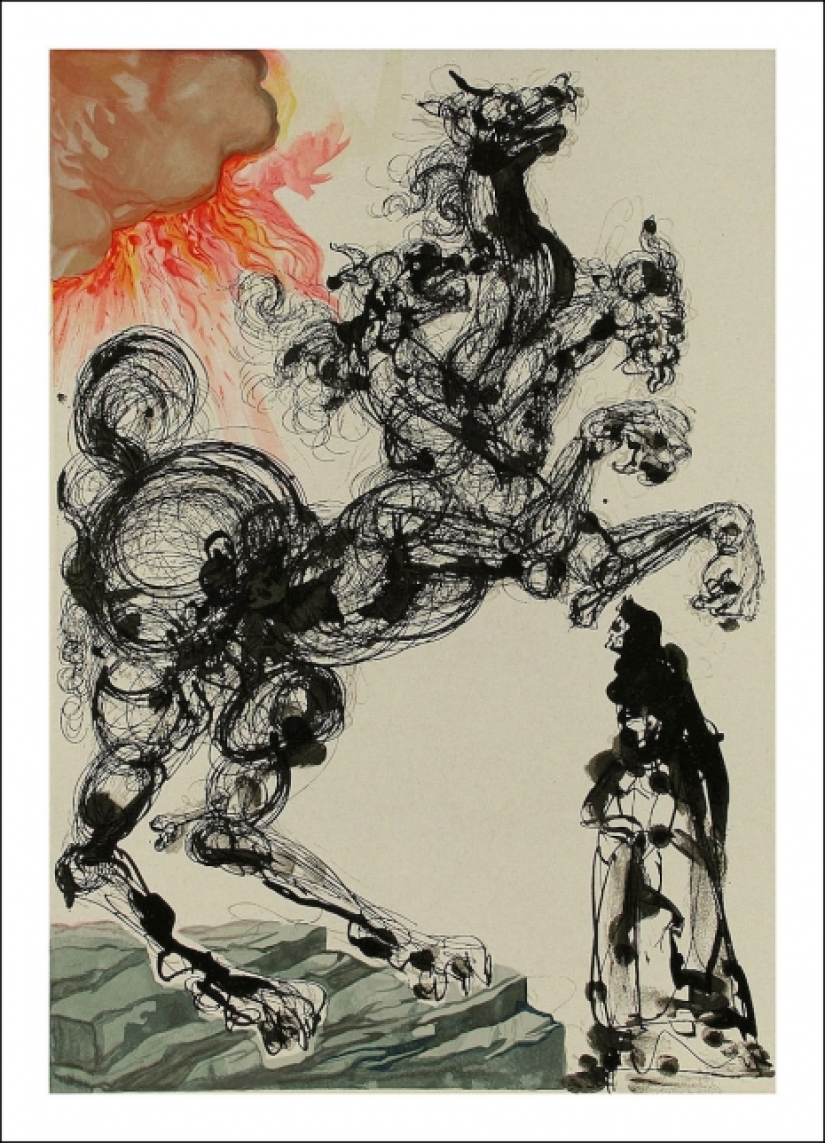
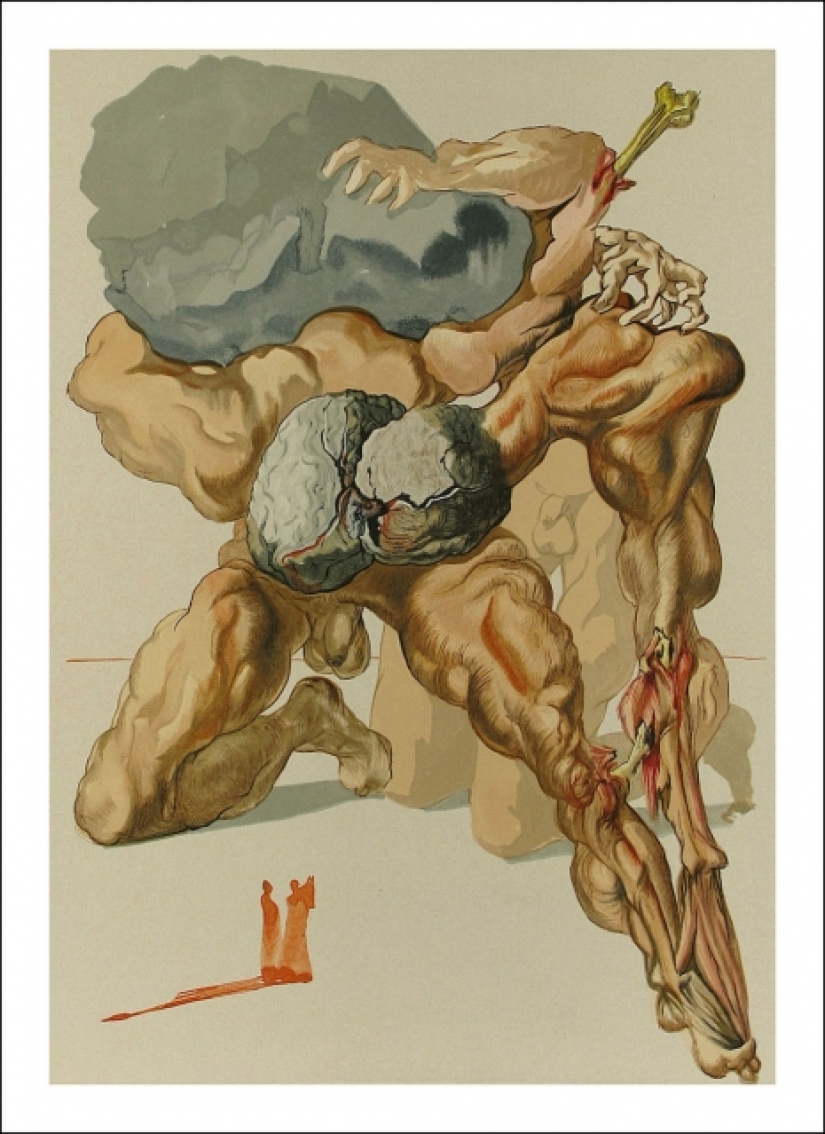
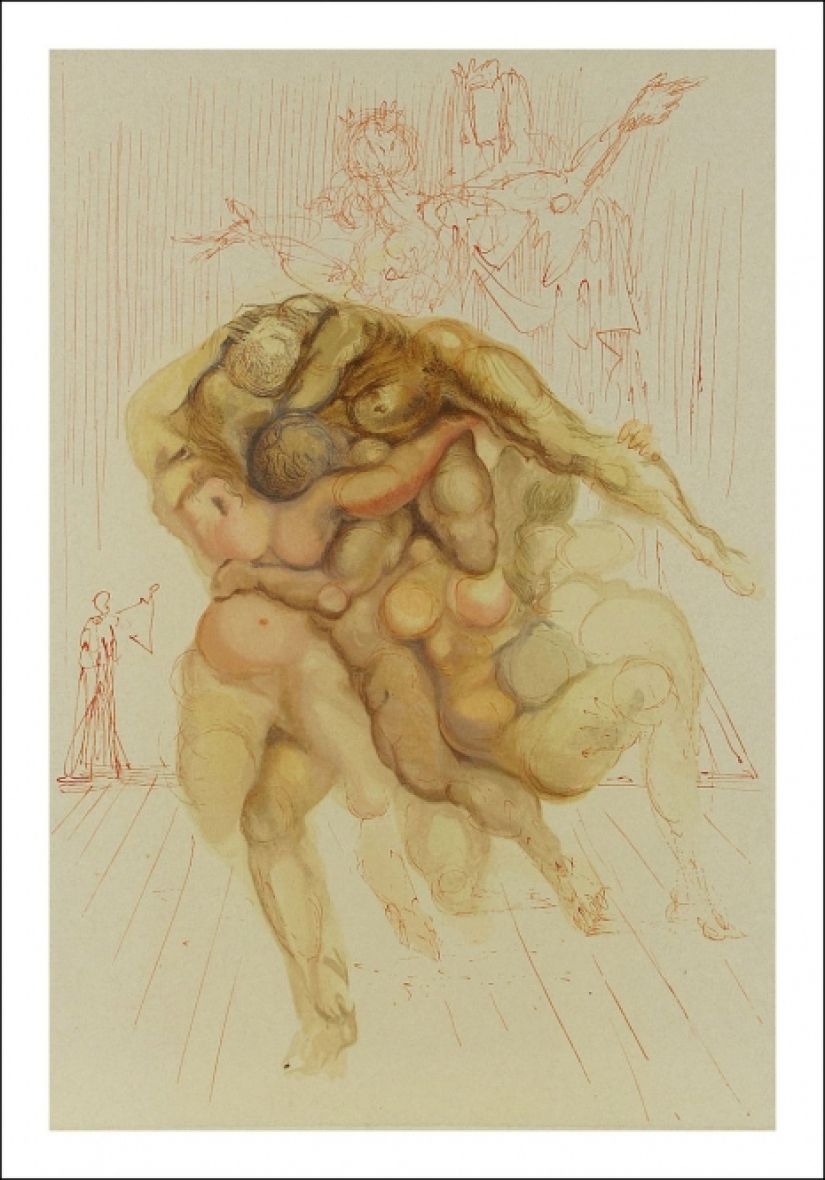
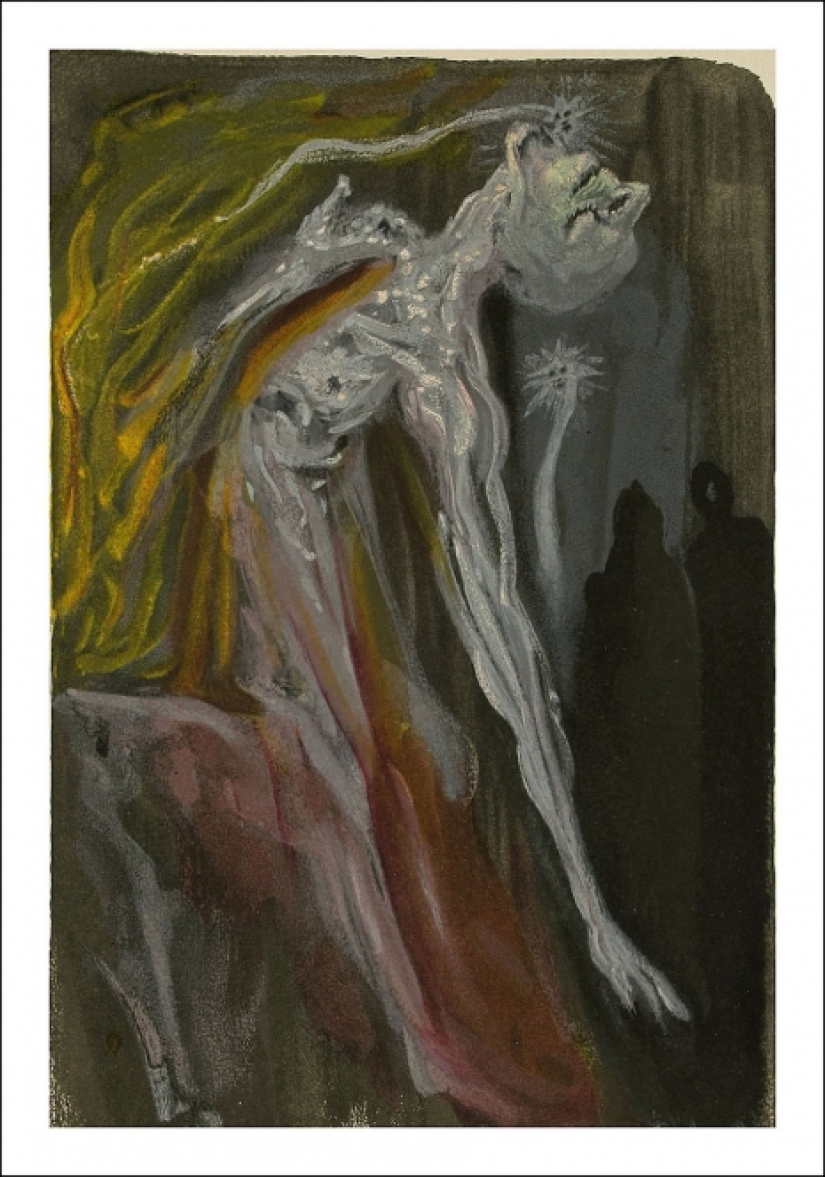
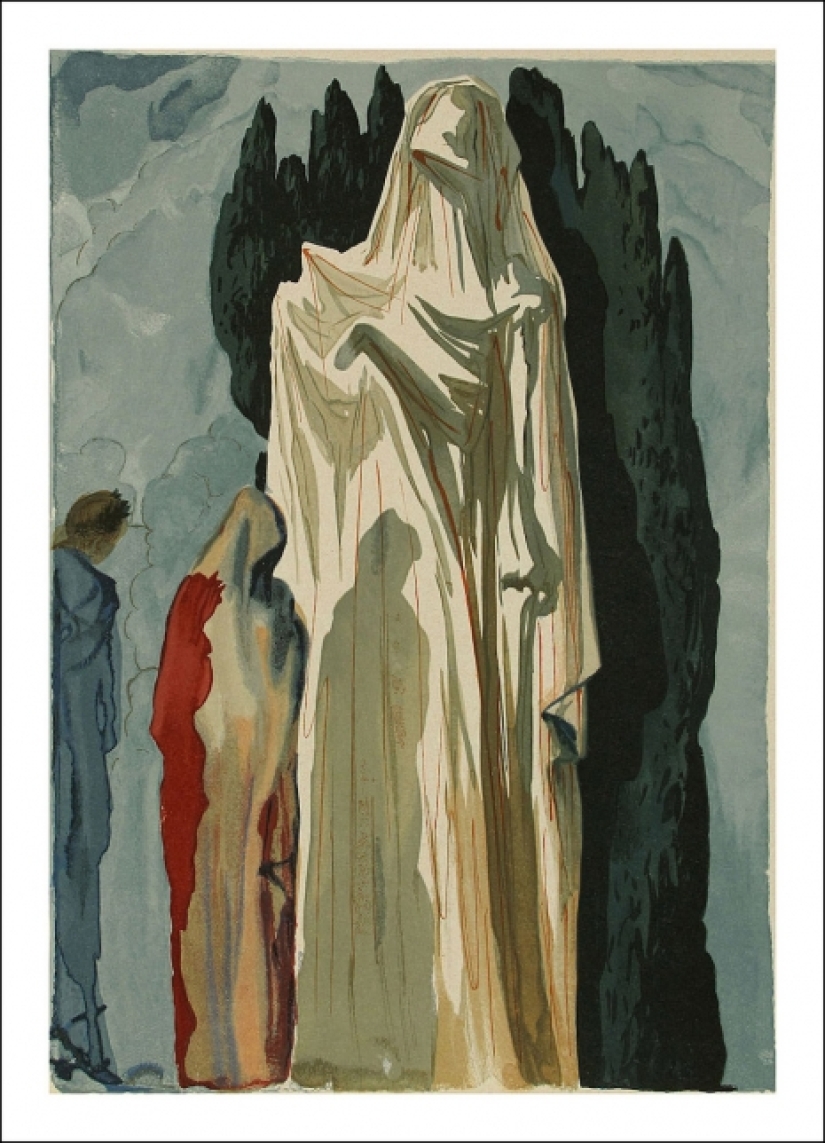
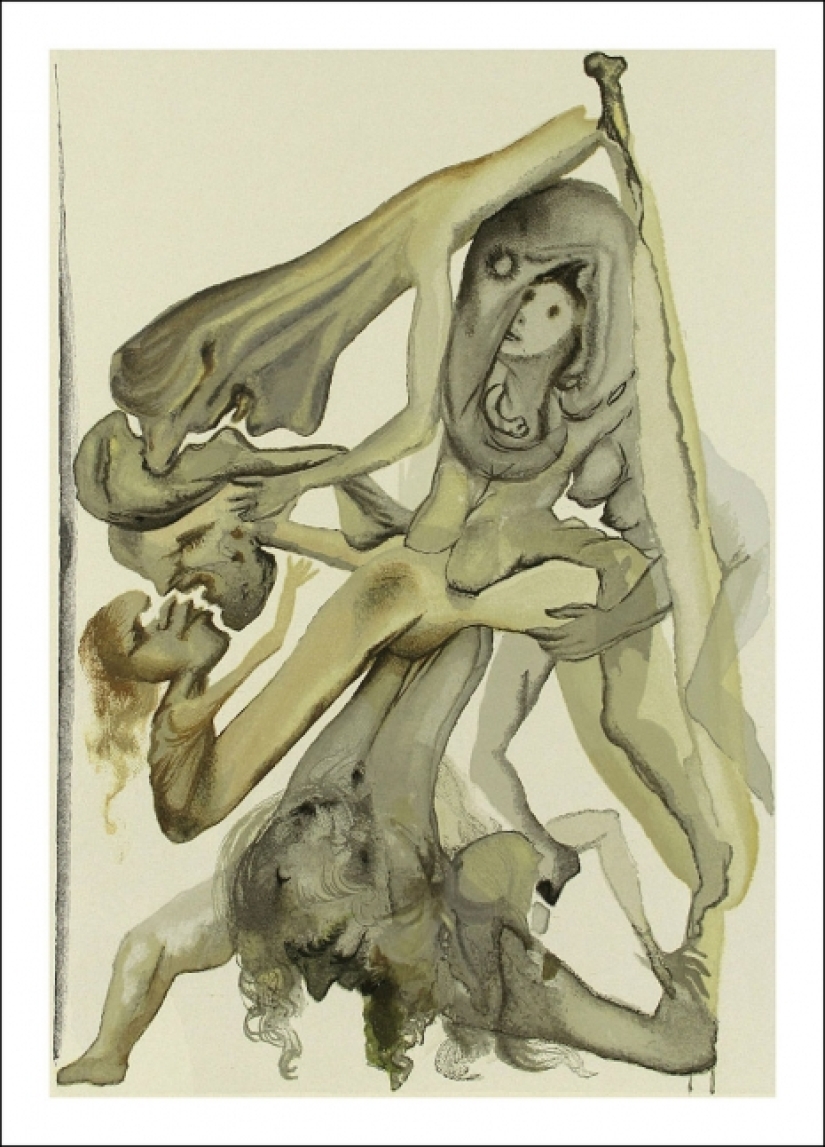
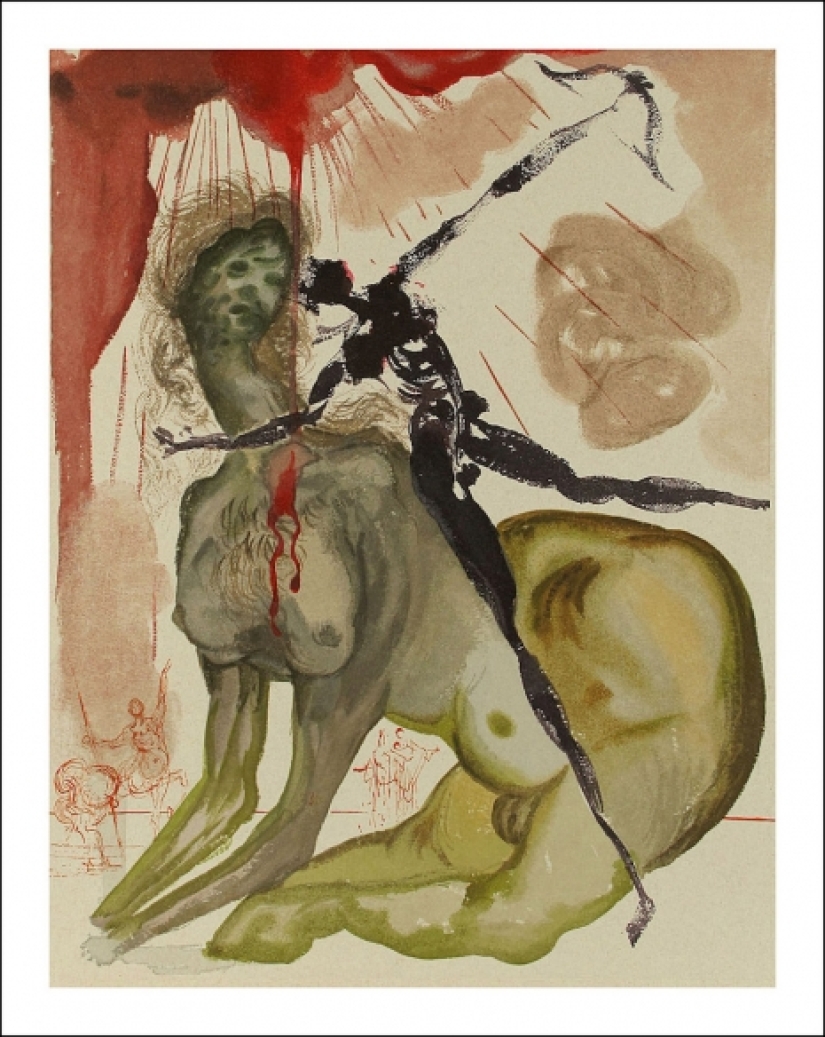
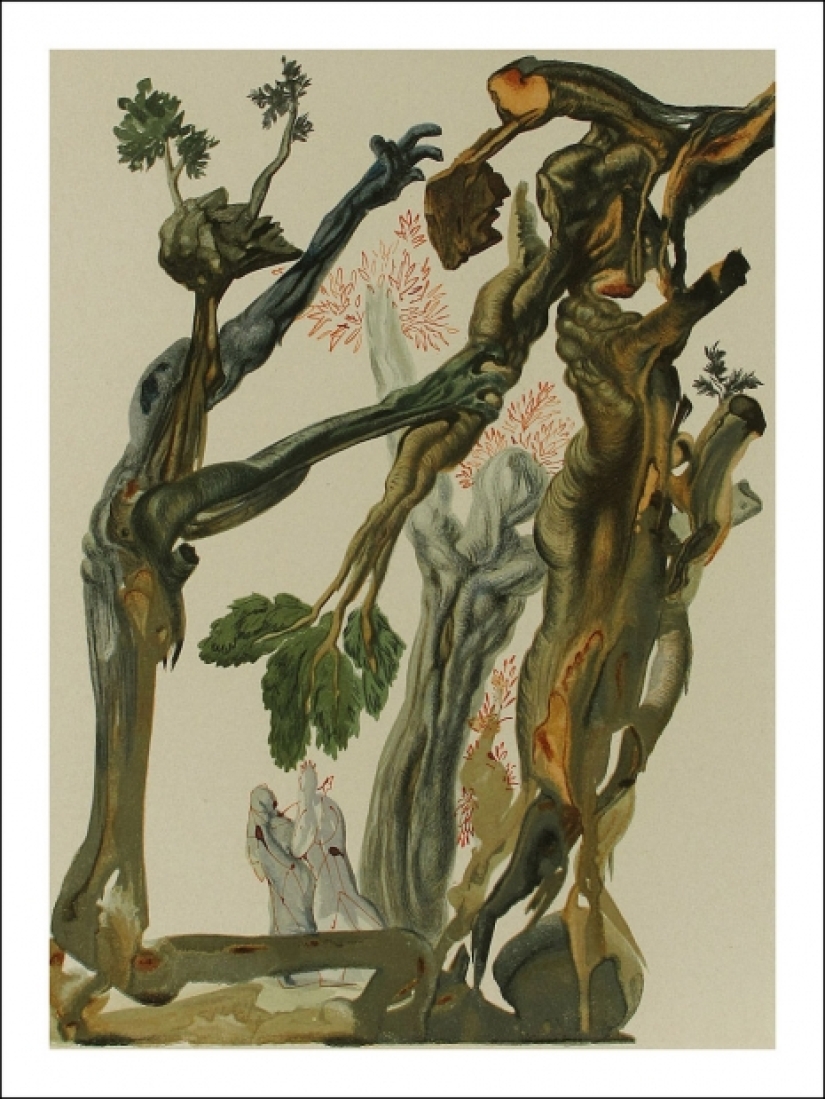
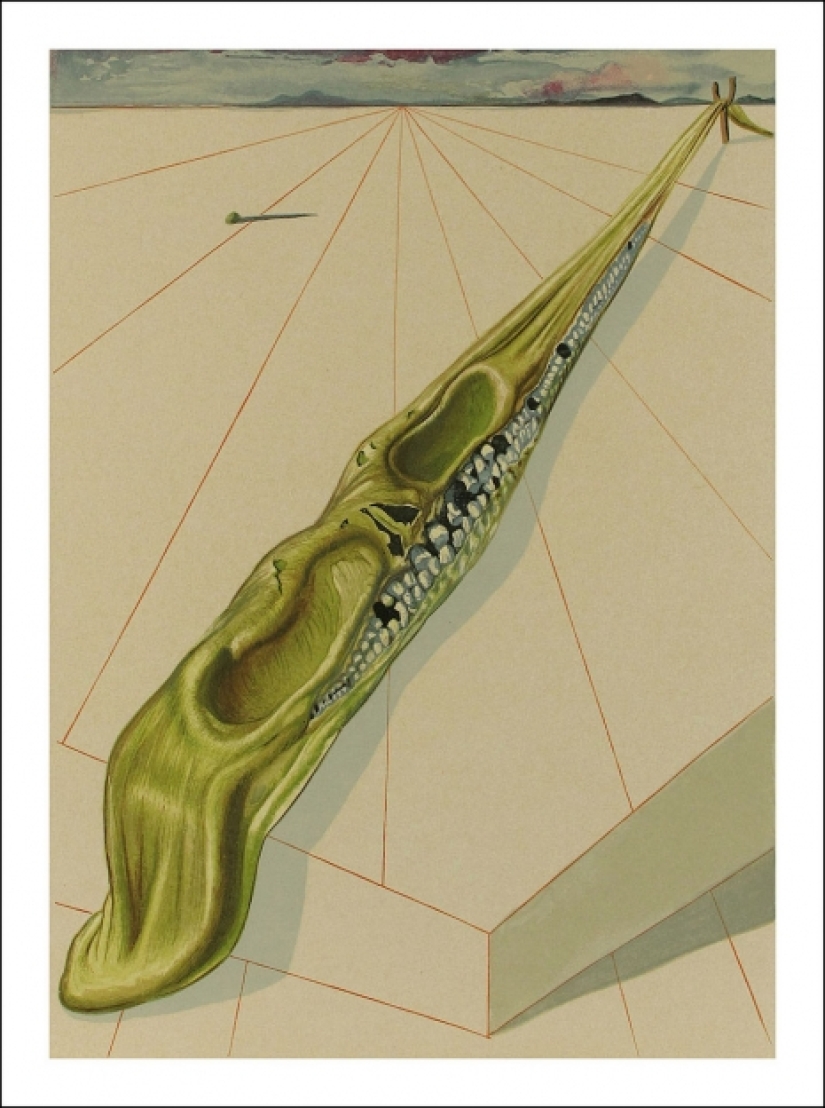
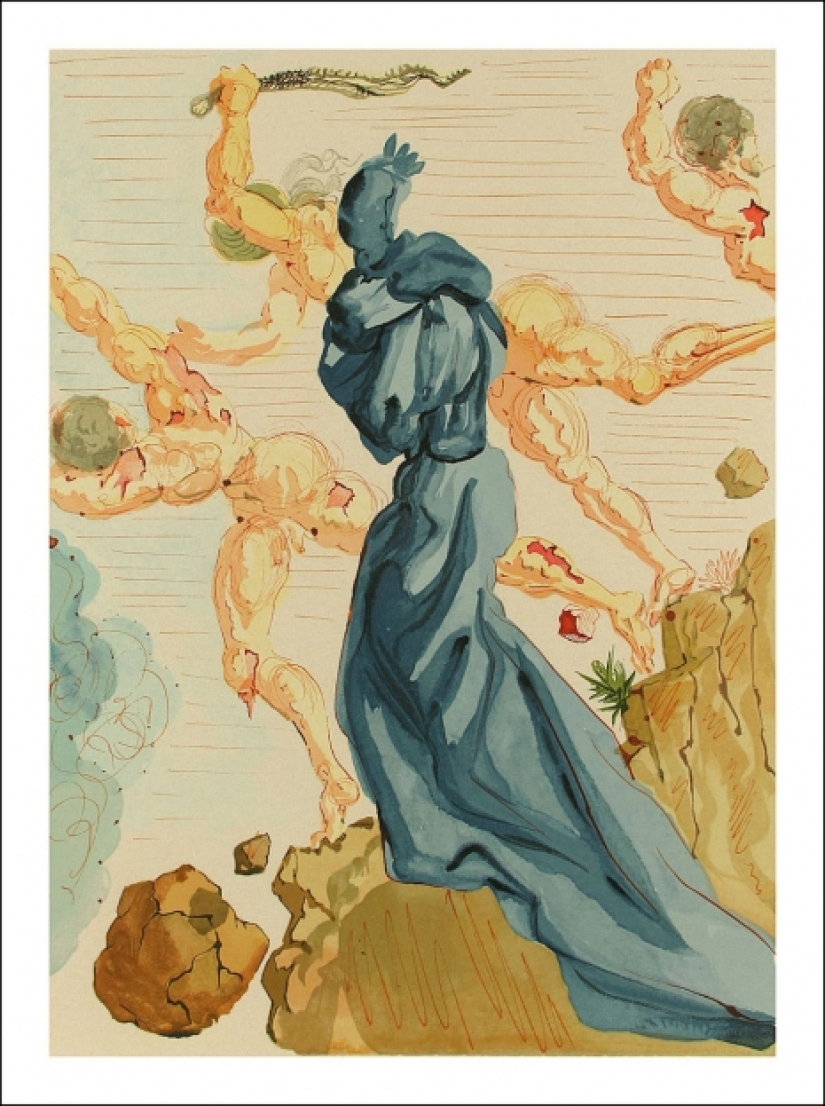
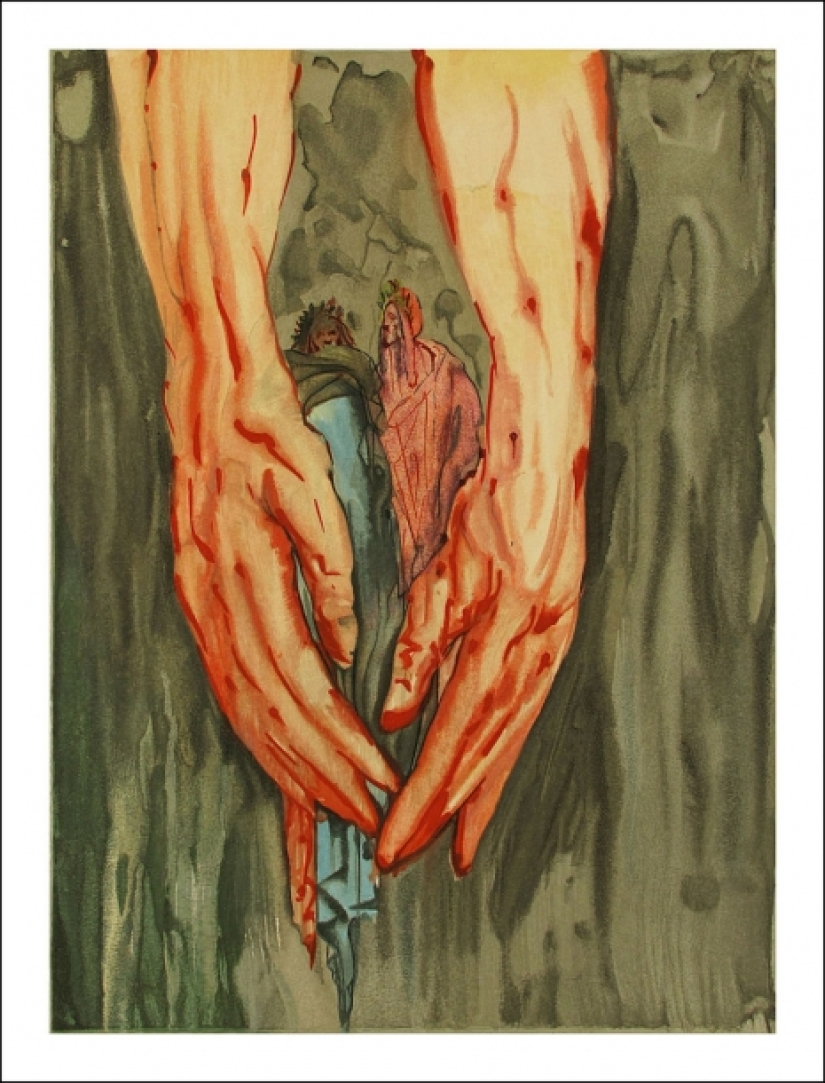
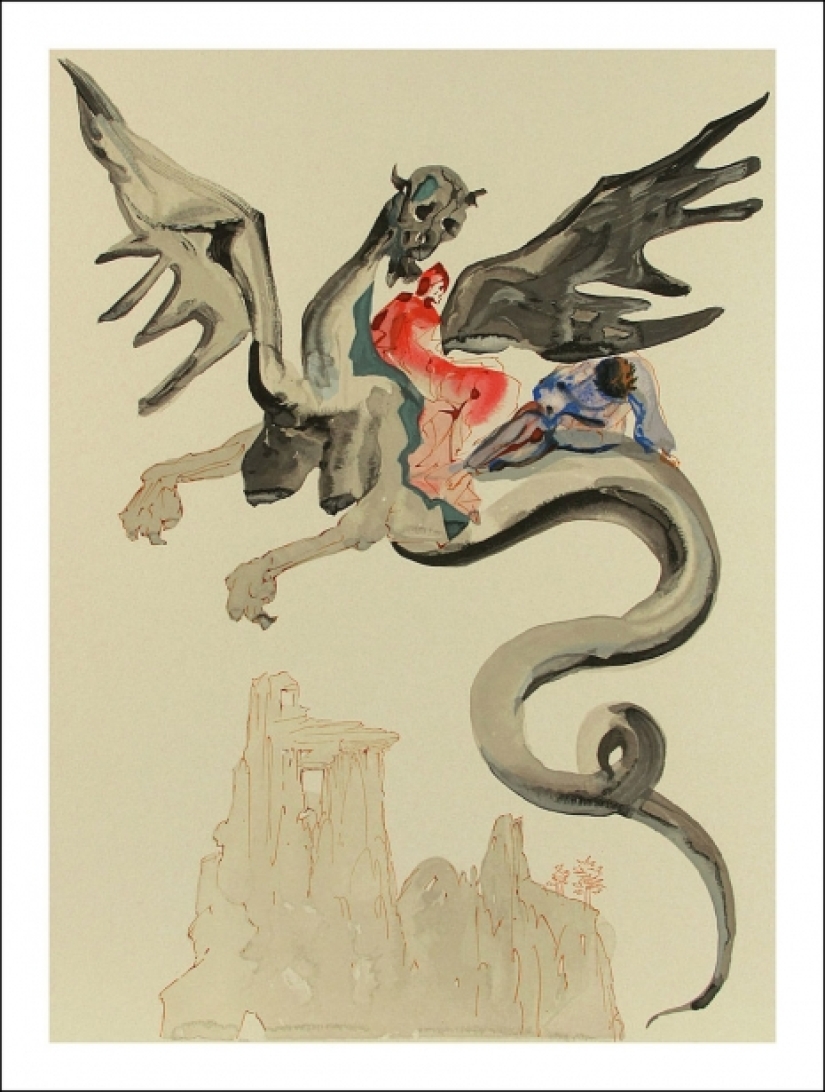
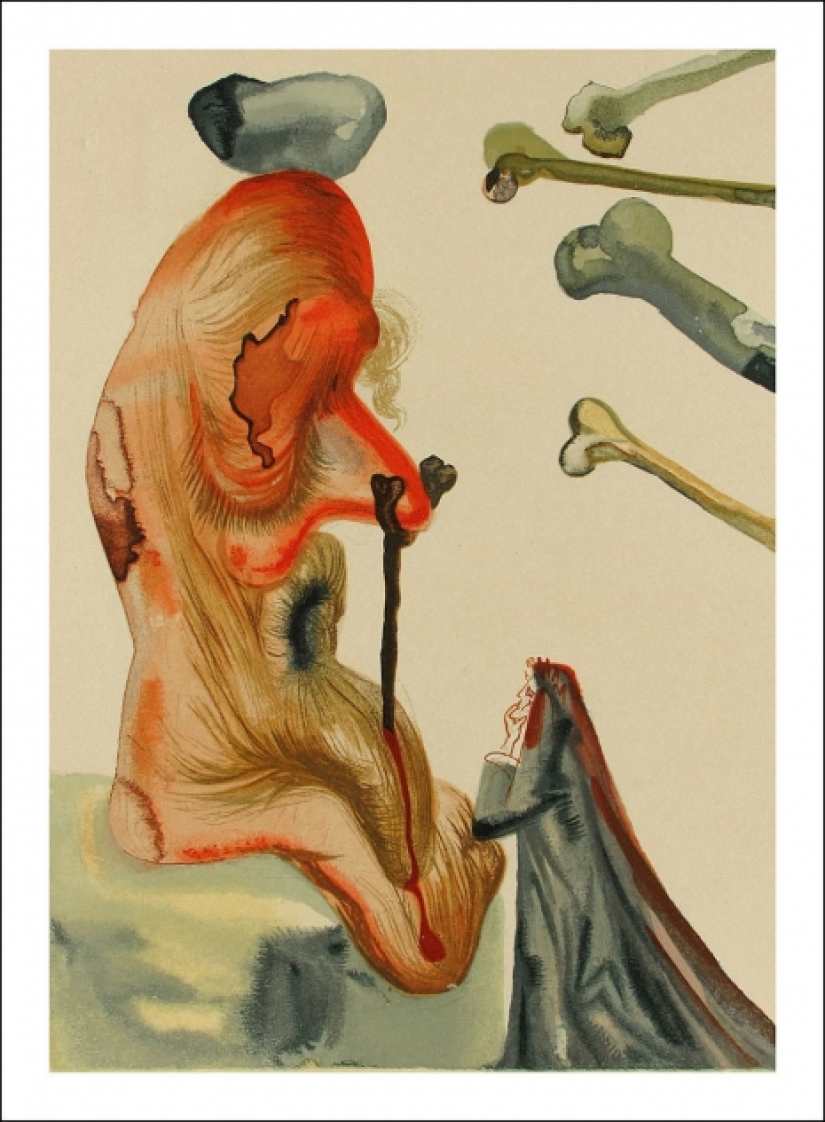
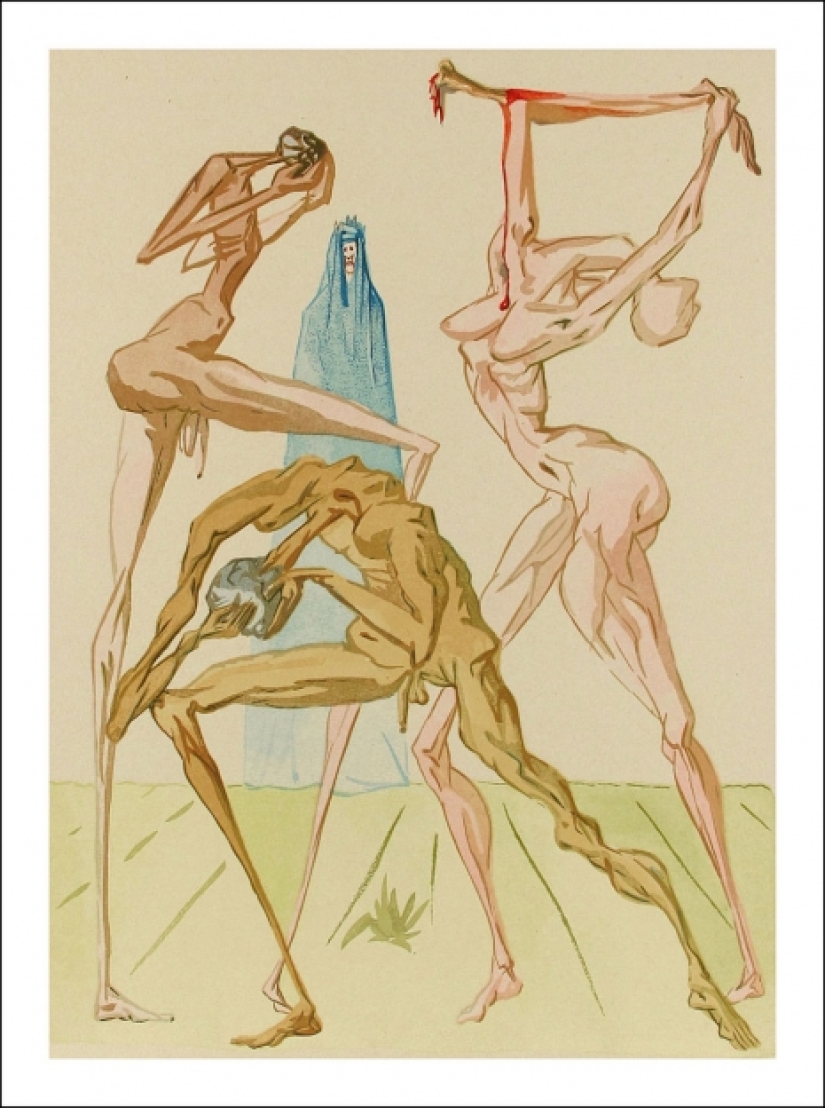
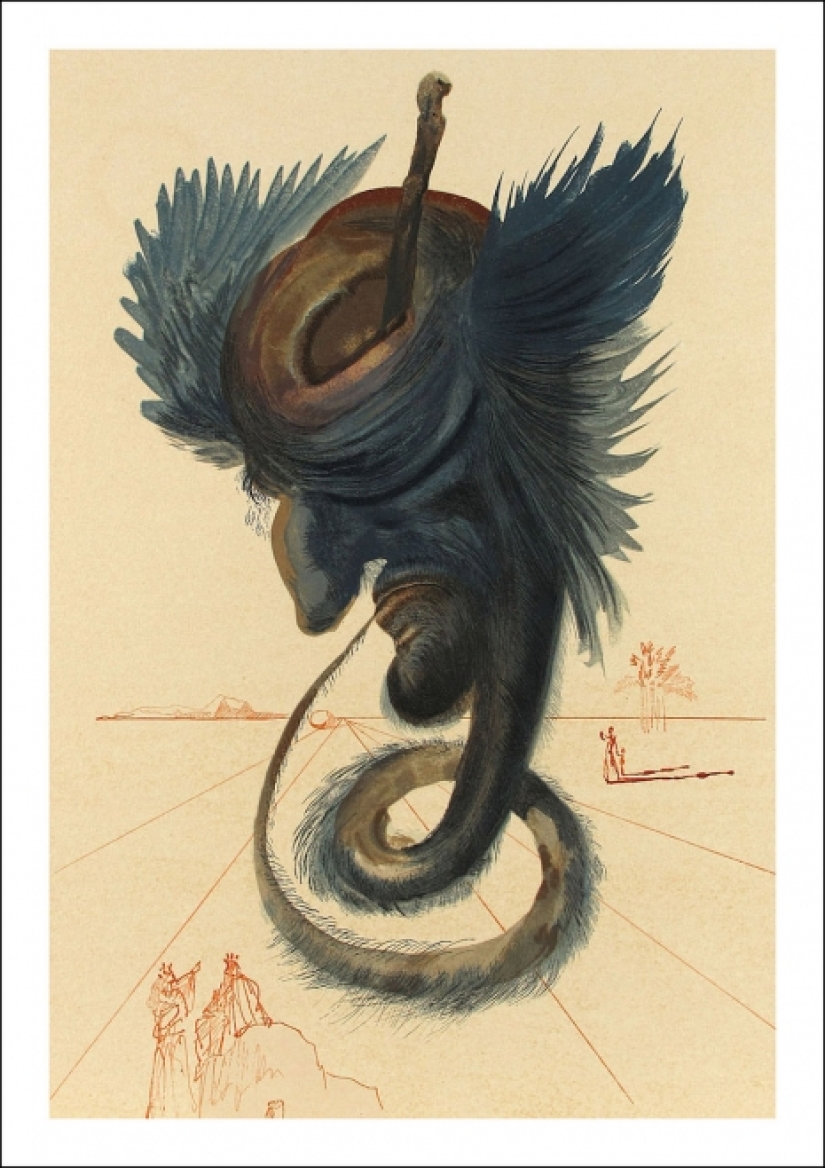
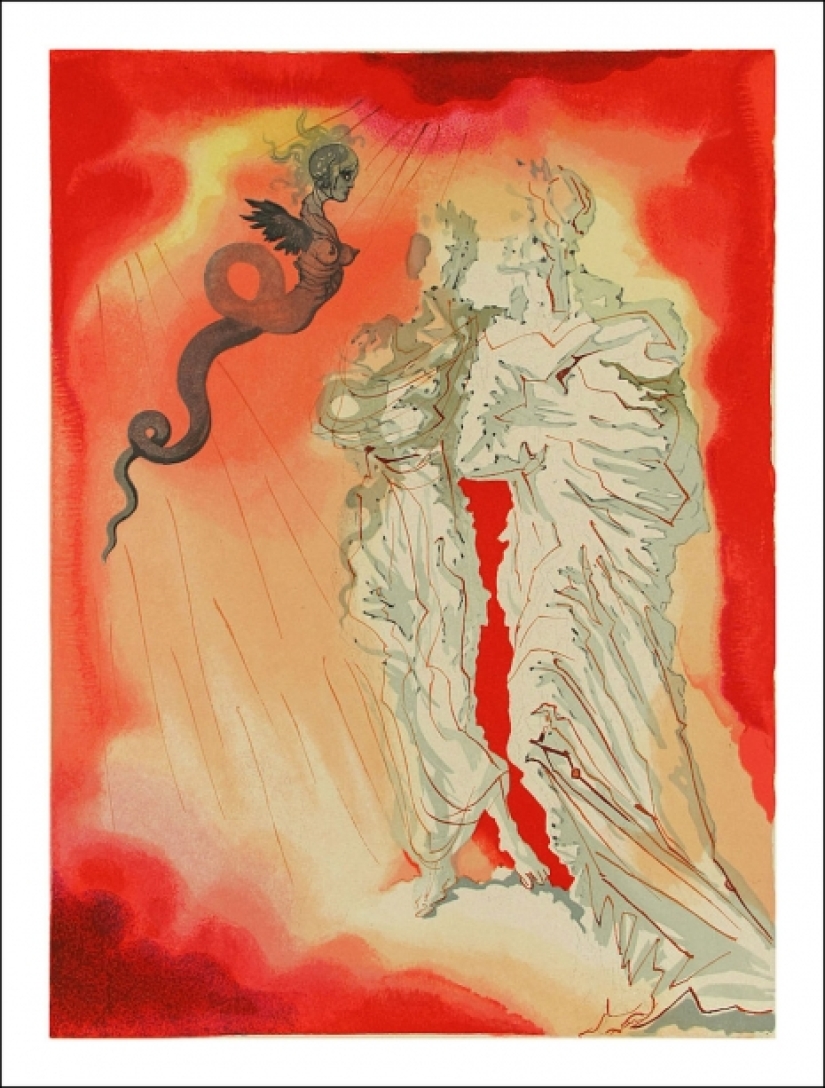
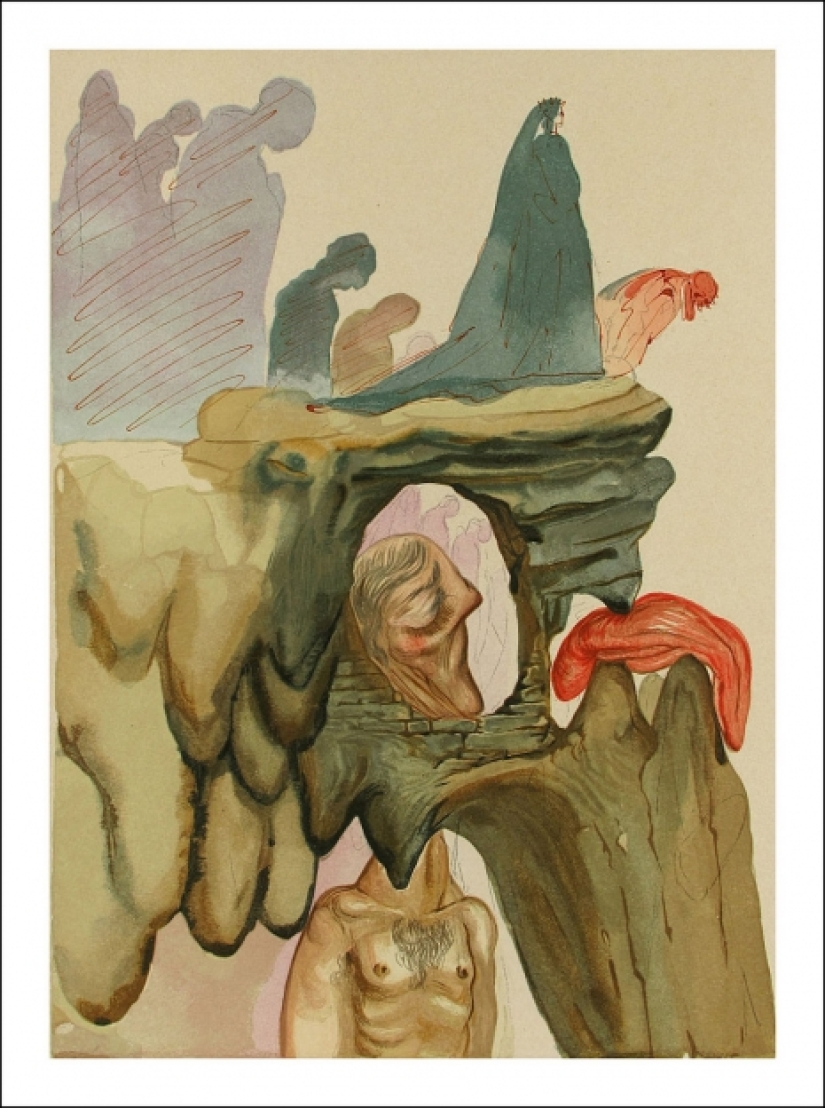
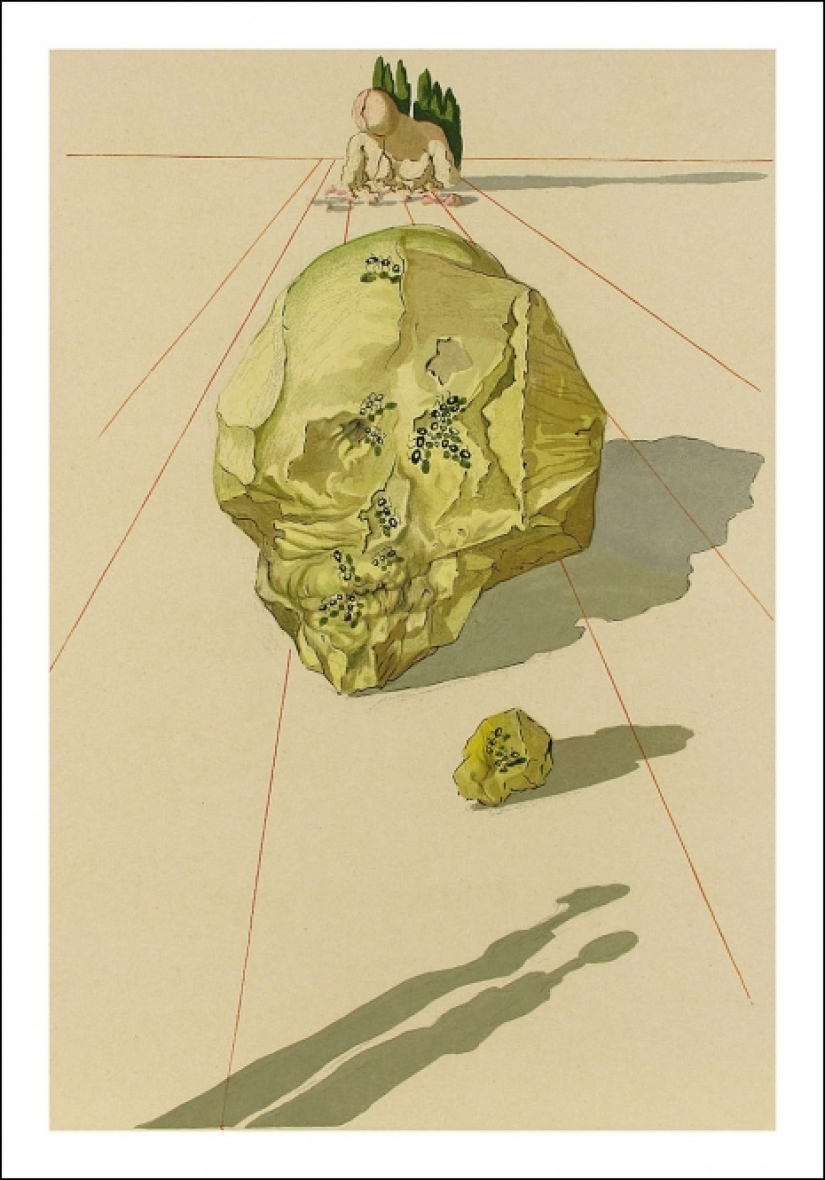
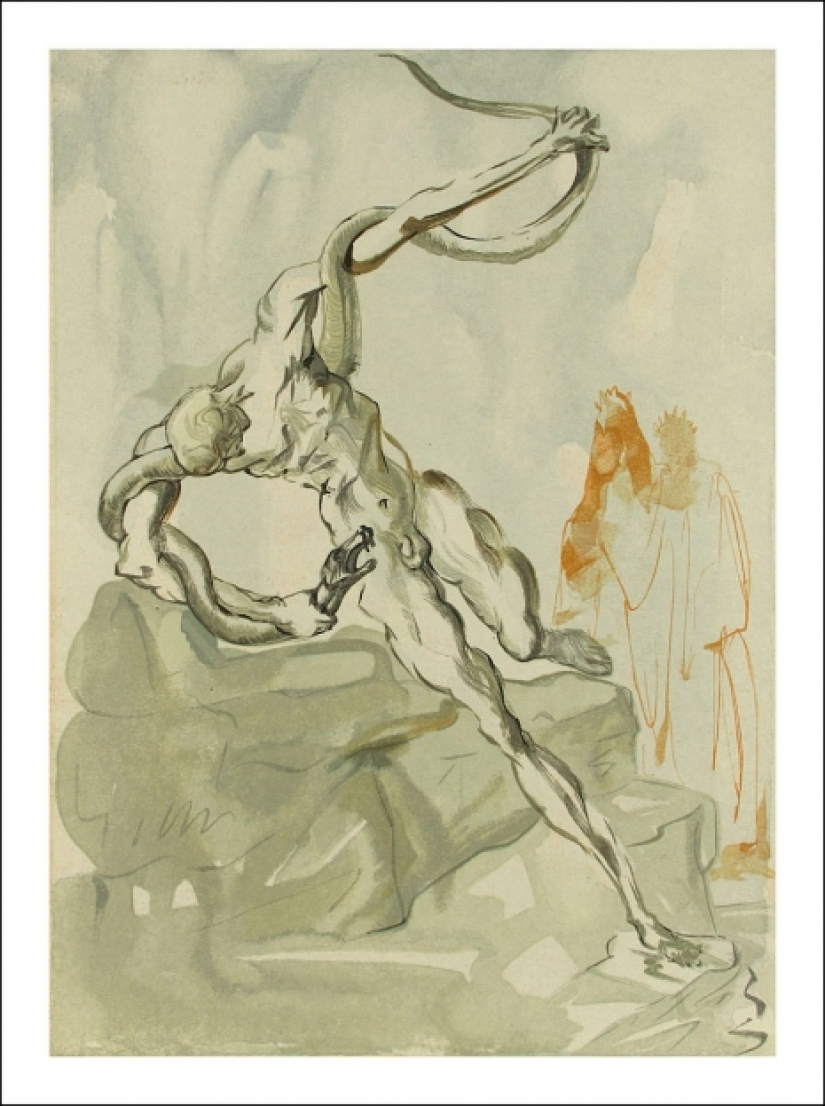
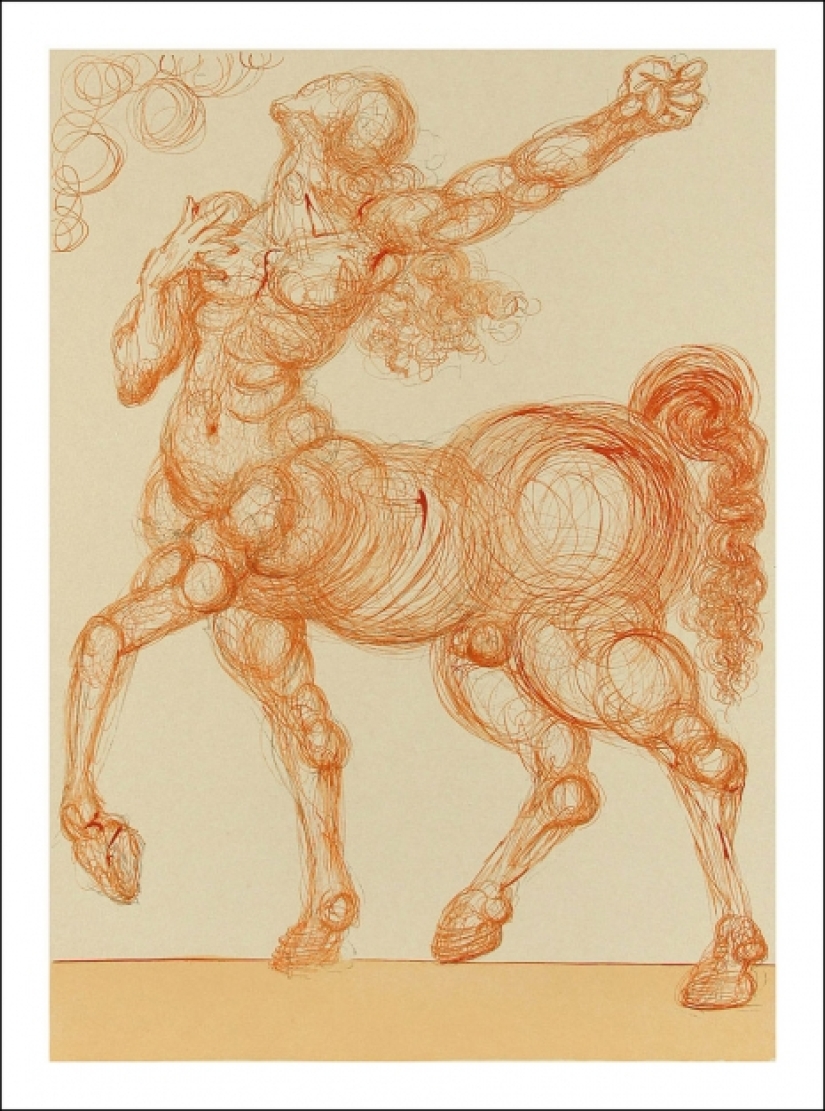
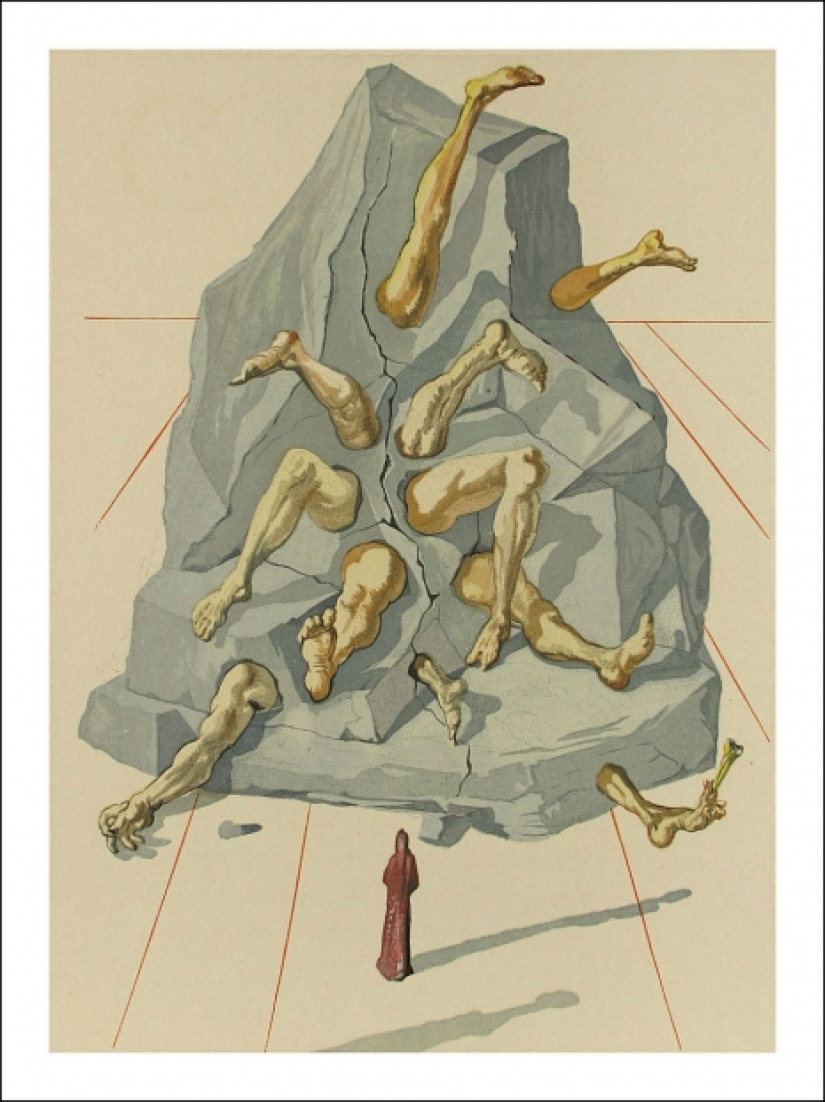
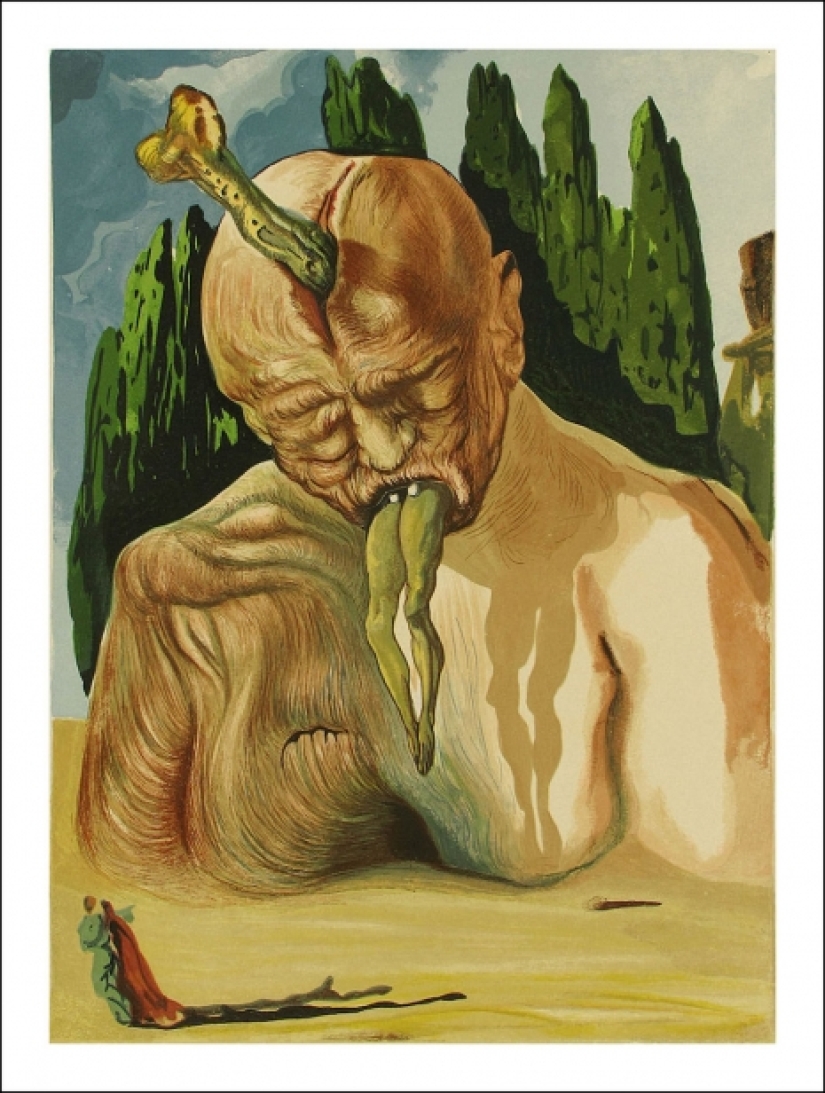
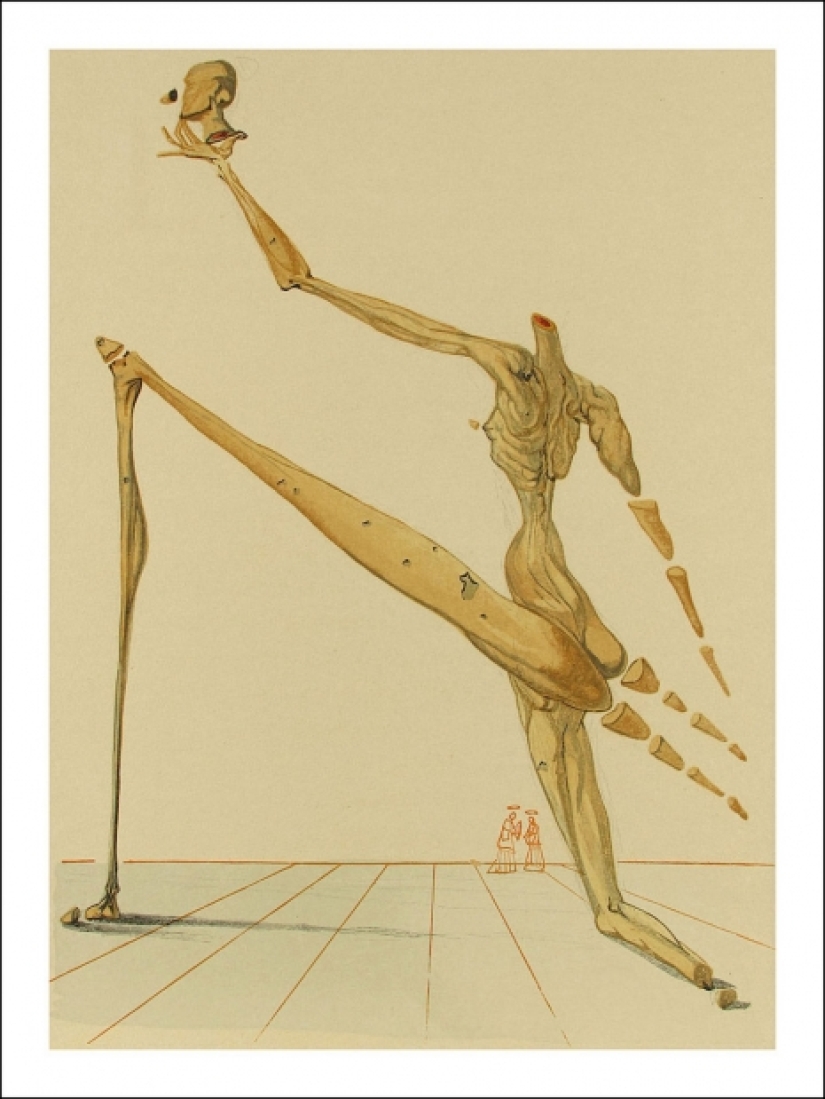
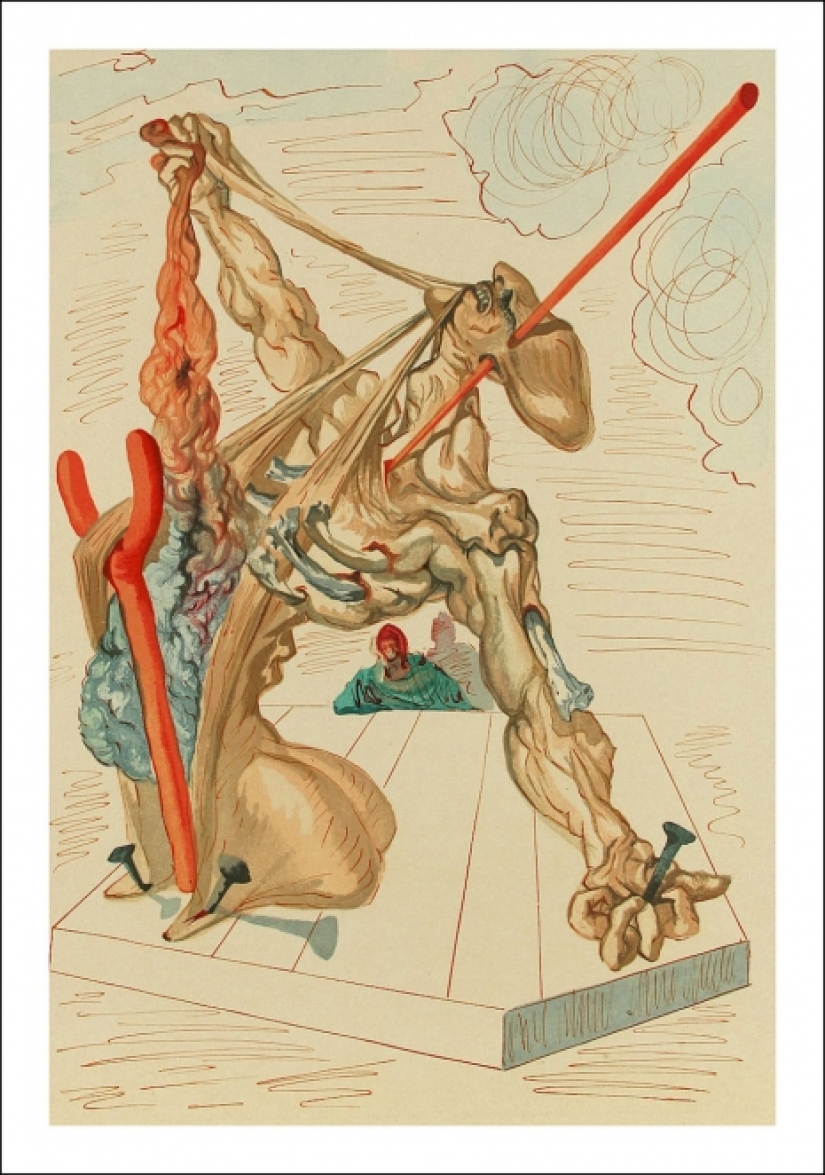
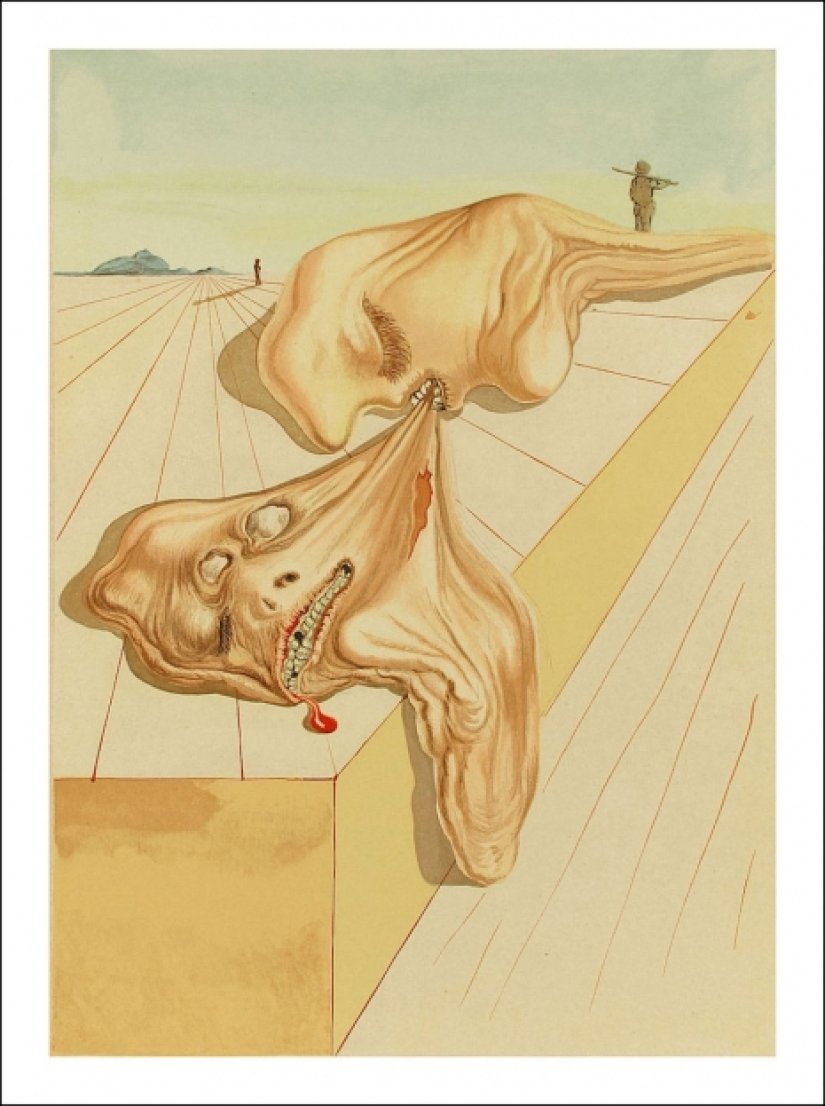
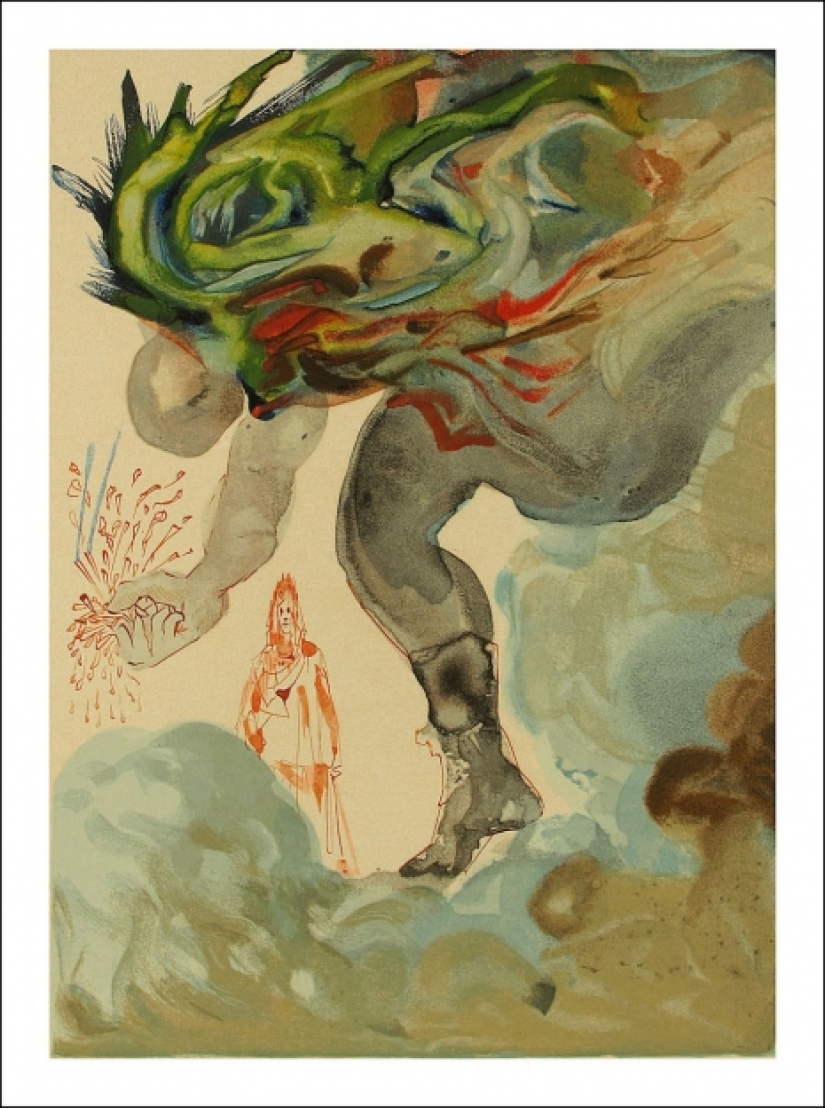
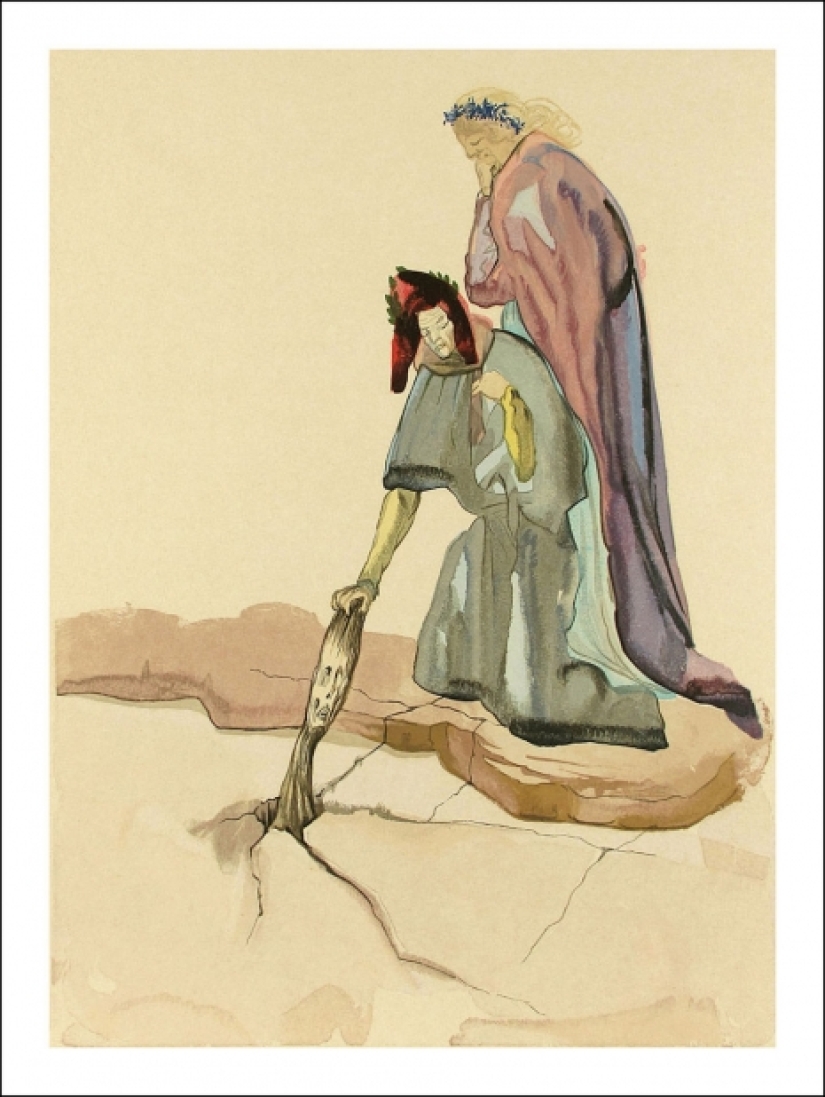
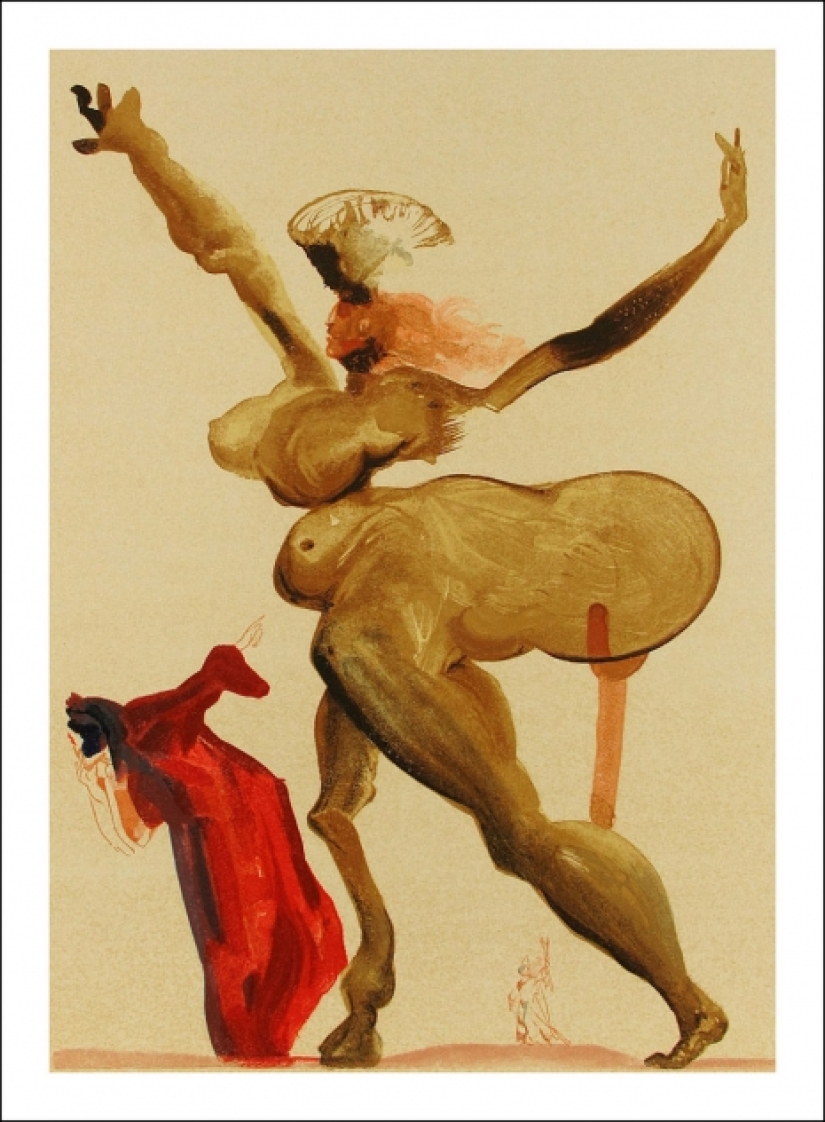
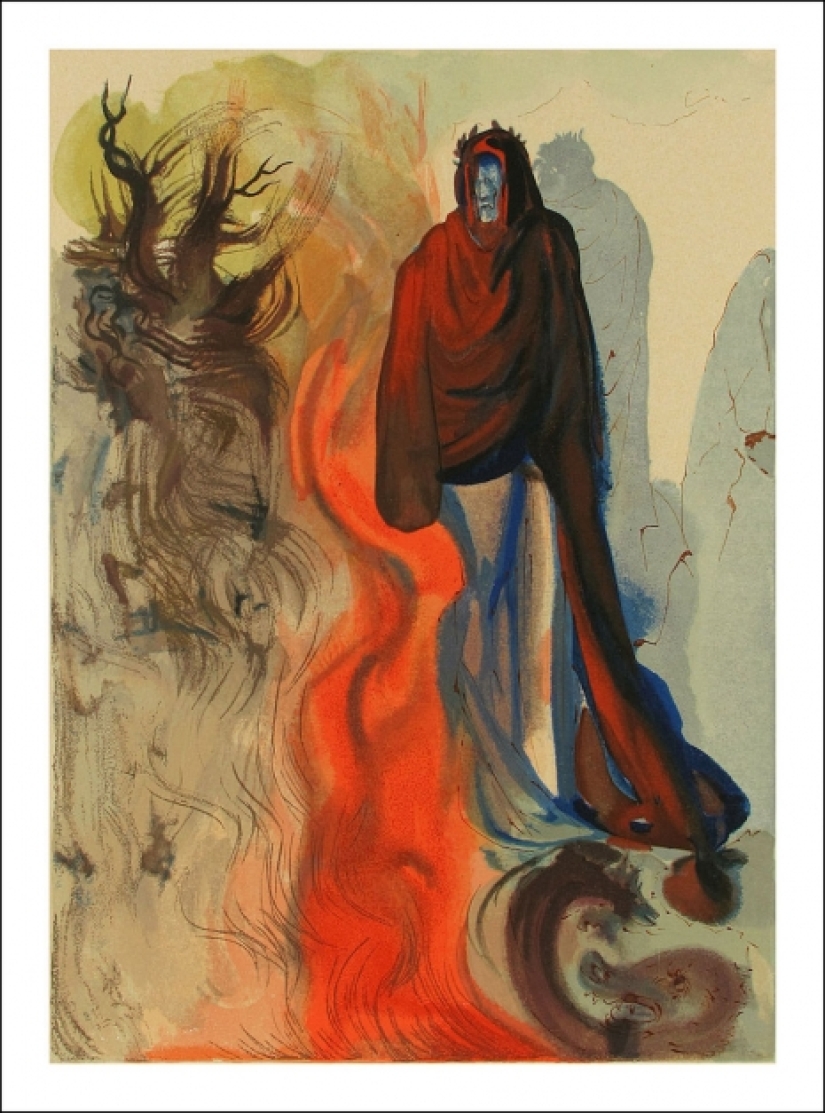
Recent articles

In Ancient Egypt, gods were revered, pharaohs were glorified, and majestic tombs were built. The builders of royal tombs were ...

Whether you are a tourist or a professional photographer, in both cases Lapland is a truly magical place. There is not only a very ...

Why should a coffin be a boring box if it can be ordered in the form of a lobster, fruit, bird or shoe? Residents of the African ...